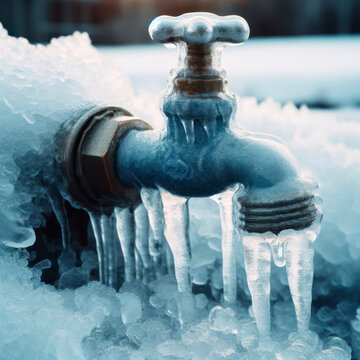Shielding Your Pipes from Freezing Damage: Key Strategies
Shielding Your Pipes from Freezing Damage: Key Strategies
Blog Article
This post on the next paragraphs relating to 6 Ways to Prevent Frozen Pipes is pretty much remarkable. Give it a try and draw your own personal conclusions.

Winter can ruin your pipes, particularly by freezing pipelines. Below's exactly how to stop it from occurring and what to do if it does.
Intro
As temperatures drop, the risk of frozen pipes boosts, potentially causing costly fixings and water damages. Recognizing exactly how to avoid frozen pipes is vital for property owners in cool environments.
Understanding Icy Pipes
What causes pipes to ice up?
Pipelines ice up when subjected to temperatures below 32 ° F (0 ° C) for expanded durations. As water inside the pipes freezes, it broadens, putting pressure on the pipe walls and potentially creating them to break.
Threats and problems
Icy pipelines can lead to supply of water disturbances, residential property damages, and pricey repair services. Burst pipelines can flood homes and cause substantial structural damages.
Indications of Frozen Pipeline
Determining icy pipelines early can prevent them from breaking.
How to recognize icy pipelines
Look for reduced water circulation from taps, unusual smells or sounds from pipes, and visible frost on revealed pipes.
Prevention Tips
Insulating prone pipes
Cover pipelines in insulation sleeves or make use of warmth tape to protect them from freezing temperatures. Focus on pipelines in unheated or external areas of the home.
Home heating techniques
Keep indoor rooms adequately warmed, particularly areas with pipes. Open cupboard doors to enable warm air to distribute around pipes under sinks.
Shielding Outdoor Plumbing
Garden pipes and outdoor faucets
Separate and drain yard tubes prior to winter. Mount frost-proof spigots or cover outside taps with insulated caps.
What to Do If Your Pipelines Freeze
Immediate activities to take
If you believe frozen pipes, keep taps open to eliminate stress as the ice melts. Use a hairdryer or towels soaked in warm water to thaw pipelines gradually.
Long-Term Solutions
Structural adjustments
Take into consideration rerouting pipes far from exterior walls or unheated locations. Add added insulation to attics, basements, and crawl spaces.
Updating insulation
Buy high-quality insulation for pipelines, attic rooms, and walls. Appropriate insulation assists preserve constant temperature levels and minimizes the risk of frozen pipes.
Verdict
Protecting against frozen pipelines needs proactive procedures and quick responses. By comprehending the causes, signs, and safety nets, homeowners can safeguard their pipes throughout cold weather.
Helpful Tips to Prevent Frozen Pipes this Winter
UNDERSTANDING THE BASICS: WHY PIPES FREEZE AND WHY IT’S A PROBLEM
Water freezing inside pipes is common during the winter months, but understanding why pipes freeze, and the potential problems it can cause is crucial in preventing such incidents. This section will delve into the basics of why pipes freeze and the associated problems that may arise.
THE SCIENCE BEHIND FROZEN PIPES
When water reaches freezing temperatures, it undergoes a physical transformation and solidifies into ice. This expansion of water as it freezes is the primary reason pipes can burst. As the water inside the pipe freezes, it expands, creating immense pressure on the walls. If the pressure becomes too great, the pipe can crack or rupture, leading to leaks and water damage.
FACTORS THAT CONTRIBUTE TO PIPE FREEZING
Low Temperatures: Extremely cold weather, especially below freezing, increases the risk of pipes freezing. Uninsulated or Poorly Insulated Pipes: Pipes located in unheated areas, such as basements, crawl spaces, or attics, are more prone to freezing. Insufficient insulation or lack of insulation altogether exacerbates the problem. Exterior Wall Exposure: Pipes running along exterior walls are susceptible to freezing as they encounter colder temperatures outside. Lack of Heating or Temperature Regulation: Inadequate heating or inconsistent temperature control in your home can contribute to frozen pipes. PROBLEMS CAUSED BY FROZEN PIPES
- Pipe Bursting: As mentioned earlier, the expansion of water as it freezes can cause pipes to burst, resulting in significant water damage.
- Water Damage: When pipes burst, it can lead to flooding and water damage to your property, including walls, ceilings, flooring, and personal belongings.
- Structural Damage: Prolonged exposure to water from burst pipes can compromise the structural integrity of your home, leading to costly repairs.
- Mold and Mildew Growth: Excess moisture from water damage can create a favorable environment for mold and mildew growth, posing health risks to occupants.
- Disrupted Water Supply: Frozen pipes can also result in a complete or partial loss of water supply until the issue is resolved.
WHY CERTAIN PIPES ARE MORE PRONE TO FREEZING
- Location: Pipes located in unheated or poorly insulated areas, such as basements, crawl spaces, attics, or exterior walls, are at higher risk of freezing.
- Exterior Pipes: Outdoor pipes, such as those used for irrigation or exposed plumbing, are particularly vulnerable to freezing as they are directly exposed to the elements.
- Supply Lines: Pipes that carry water from the main water supply into your home, including the main water line, are critical to protect as freezing in these lines can affect your entire plumbing system.
- Underground Pipes: Pipes buried underground, such as those connected to sprinkler systems or outdoor faucets, can be susceptible to freezing if not properly insulated.
https://busybusy.com/blog/helpful-tips-to-prevent-frozen-pipes-this-winter/

I was introduced to that article about How to prepare your home plumbing for winter weather from someone on our other website. Don't hesitate to take the opportunity to distribute this write-up if you enjoyed it. Thank you so much for taking the time to read it.
Call Today Report this page